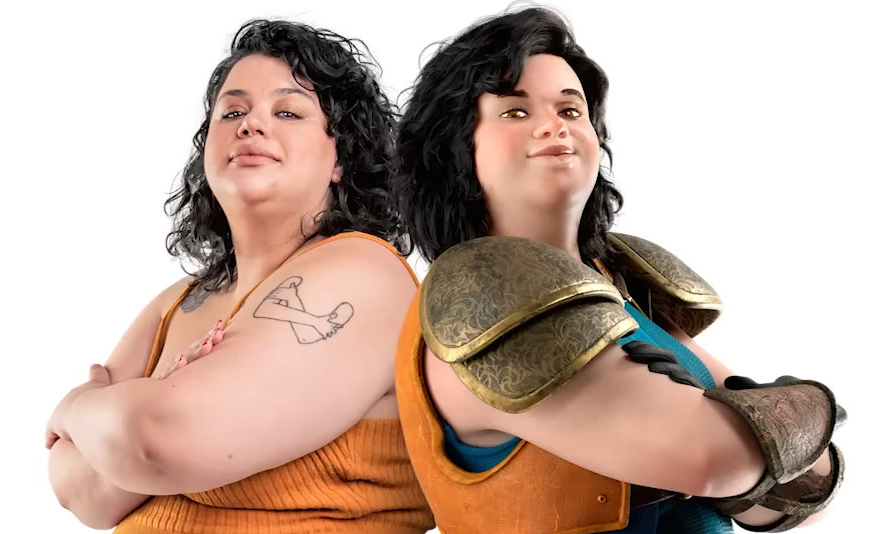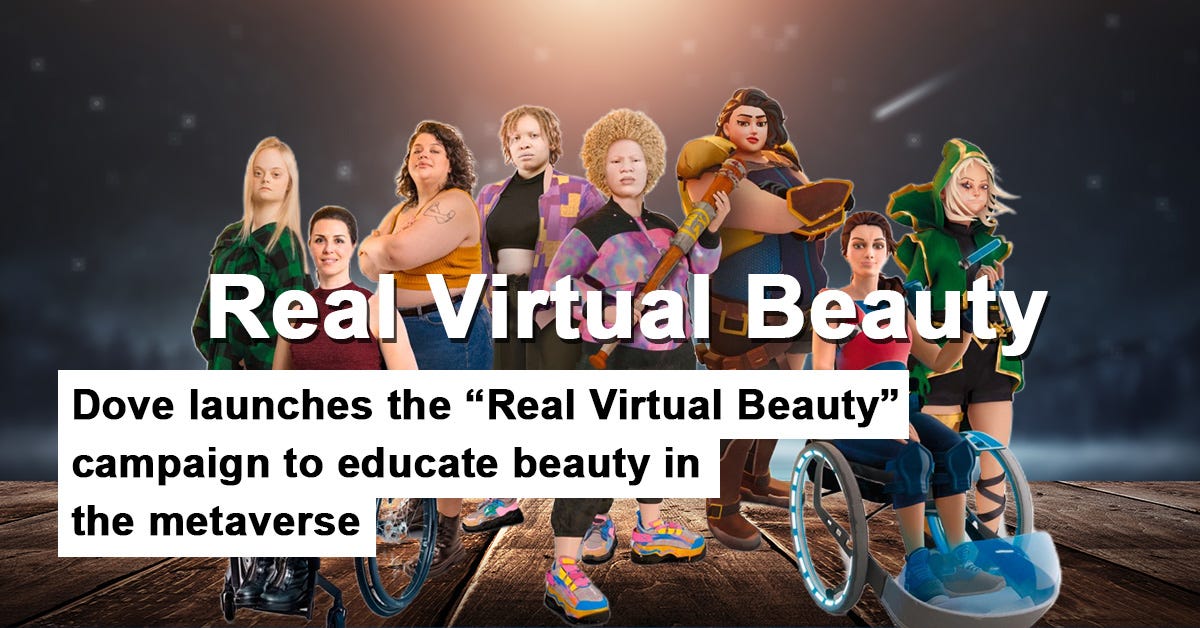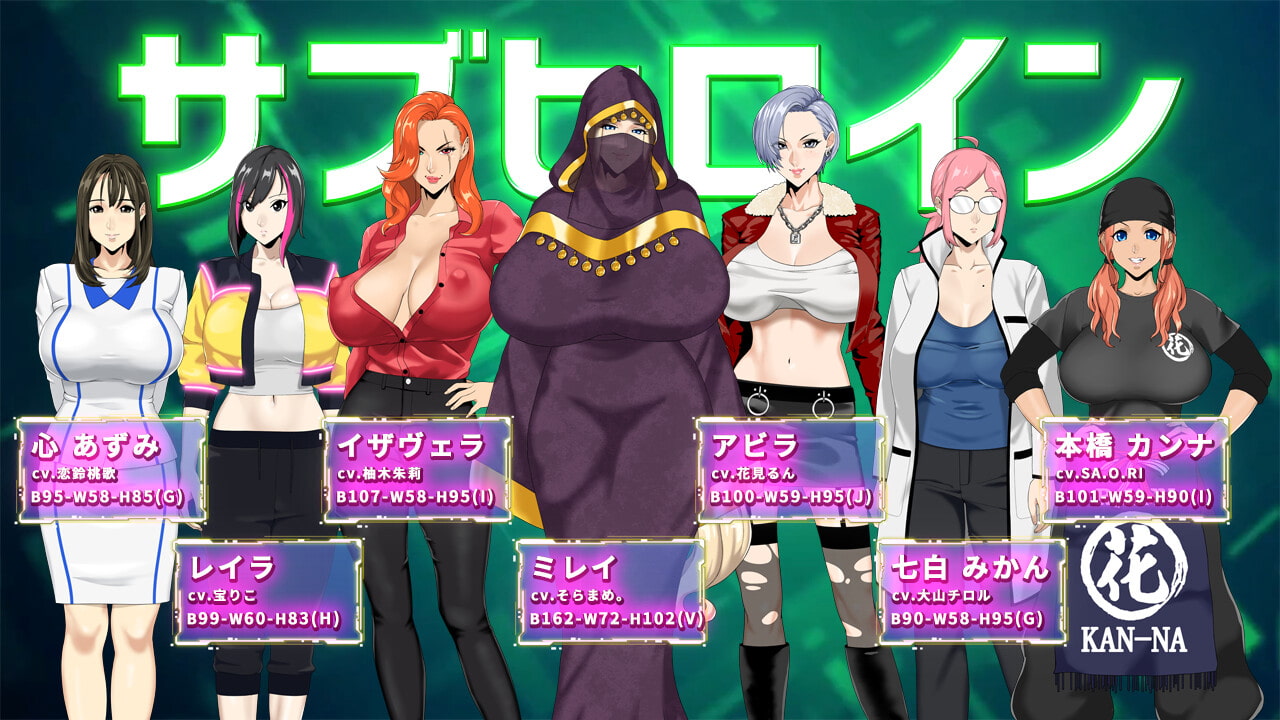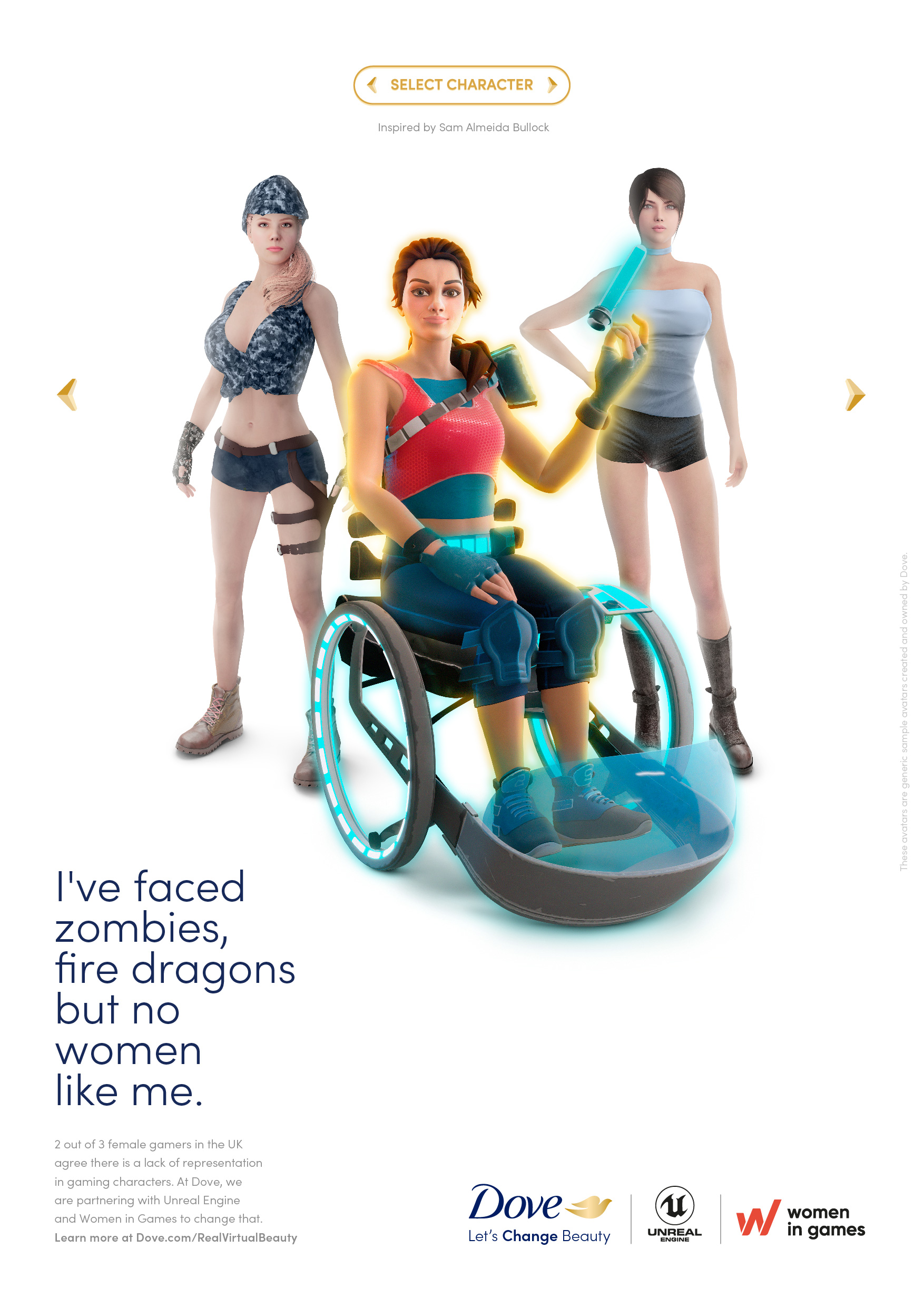
Actually, a game where annoying women in wheelchairs fight a dragon sounds fun, assuming you’re playing the dragon
This is the single most moral soap company I’ve ever seen in my life.
This fascist nation is in a sad state when it’s left to soap companies to speak out about entertainment media designed for teenage boys not featuring ugly fat women.
The latest brand to hop on the ‘body positive movement’, the ‘Dove’ brand has launched a new ad campaign calling on video game fans to reject “the narrow definitions of beauty” found in modern titles.
The Unilever-owned line of hygiene products first “[took] a stand against overly sexualized women in video games”on May 11th with the unveiling of a new commercial in which they called on players to “[eliminate] steotypes” and “build young players’ self-esteem & body confidence.”
Shared to the public via the official Twitter account for advertising and marketing-centric news outlet The Drum and developed in collaboration between Dove, Epic Games’ Unreal Engine education team, and the Women in Games activism organization, the ad in question opens with an establishing shot of a battleground littered with dragon bones:
Ewww
From there, an ice-armed beast emerges from the rubble, only to be met by a female warrior named Cinthia – whose design seemingly draws heavy-inspiration from the titular protagonist of Battle Angel Alita and is named after a real-world player featured in Dove’s campaign – who quickly proceeds to bring him down with an energy blast from her sword.
As she lands in her victory pose, a bell rings suddenly rings out, and the digital landscape the two opponents once occupied dematerializes to reveal that they were nothing more than ‘actors’ playing the roles of their respective characters.
Cinthia then returns home to what seems to be a combination dressing-room-slash-apartment, only to become slightly dismayed after catching her fully-suited up, shapely figure in a mirror.
Attempting to ‘own’ her look with a heroic pose, she soon gives up on her facade and proceeds to both free her larger frame from the restrictive confines of her armor as well as wipe some make-up from her face.
Now relaxed and comfortable, her break is soon interrupted by the ‘return to set’ bell.
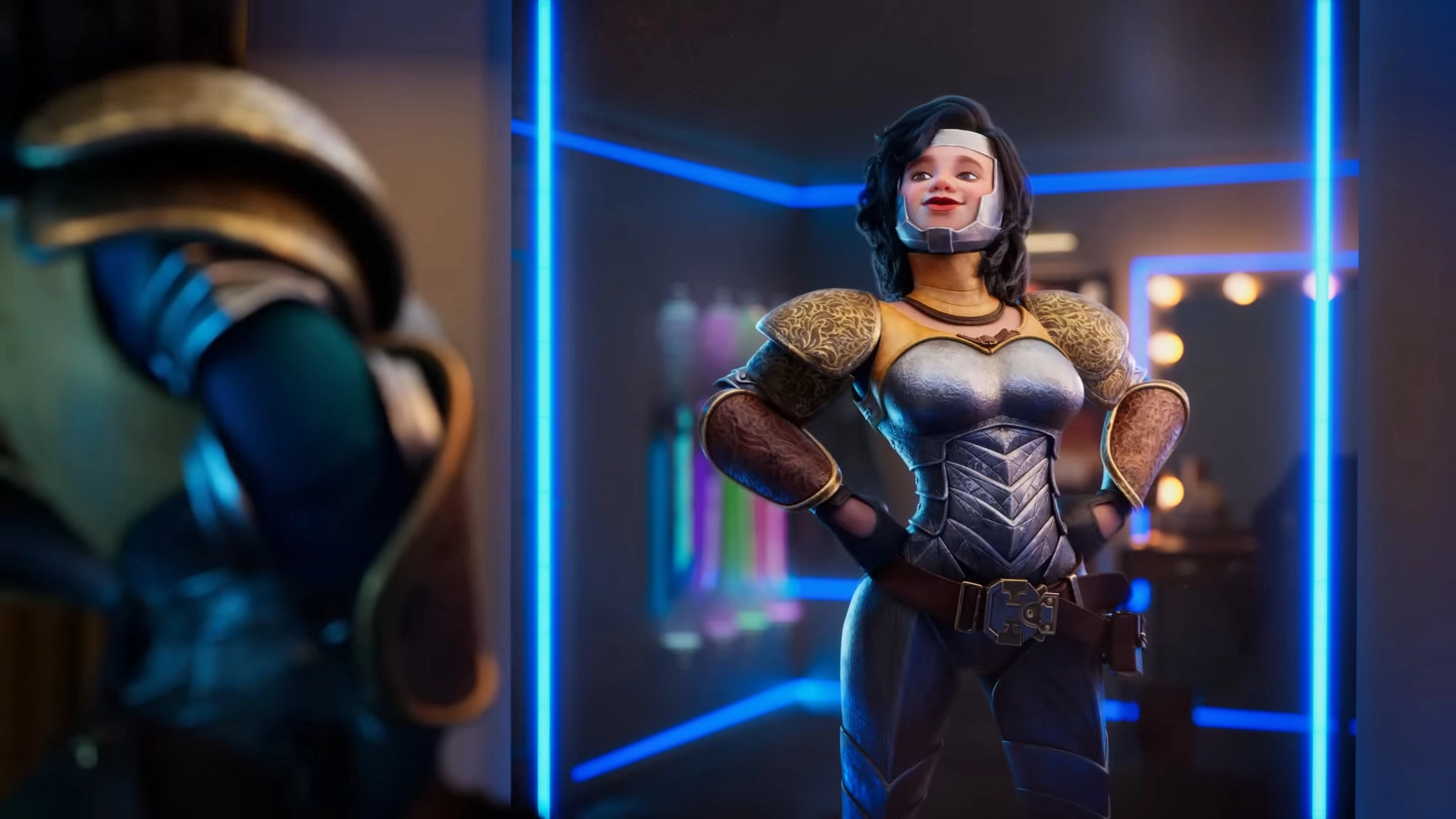
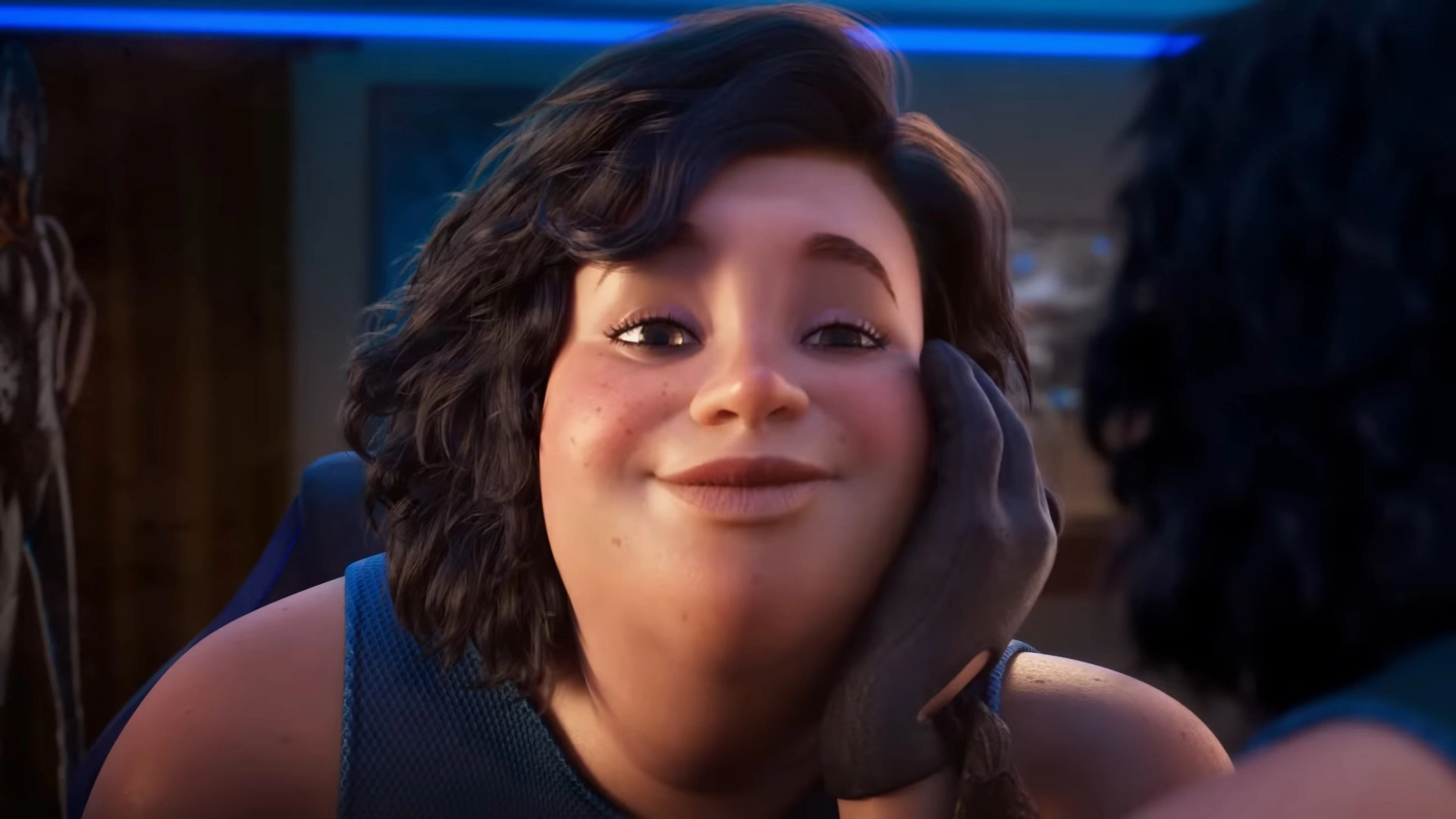
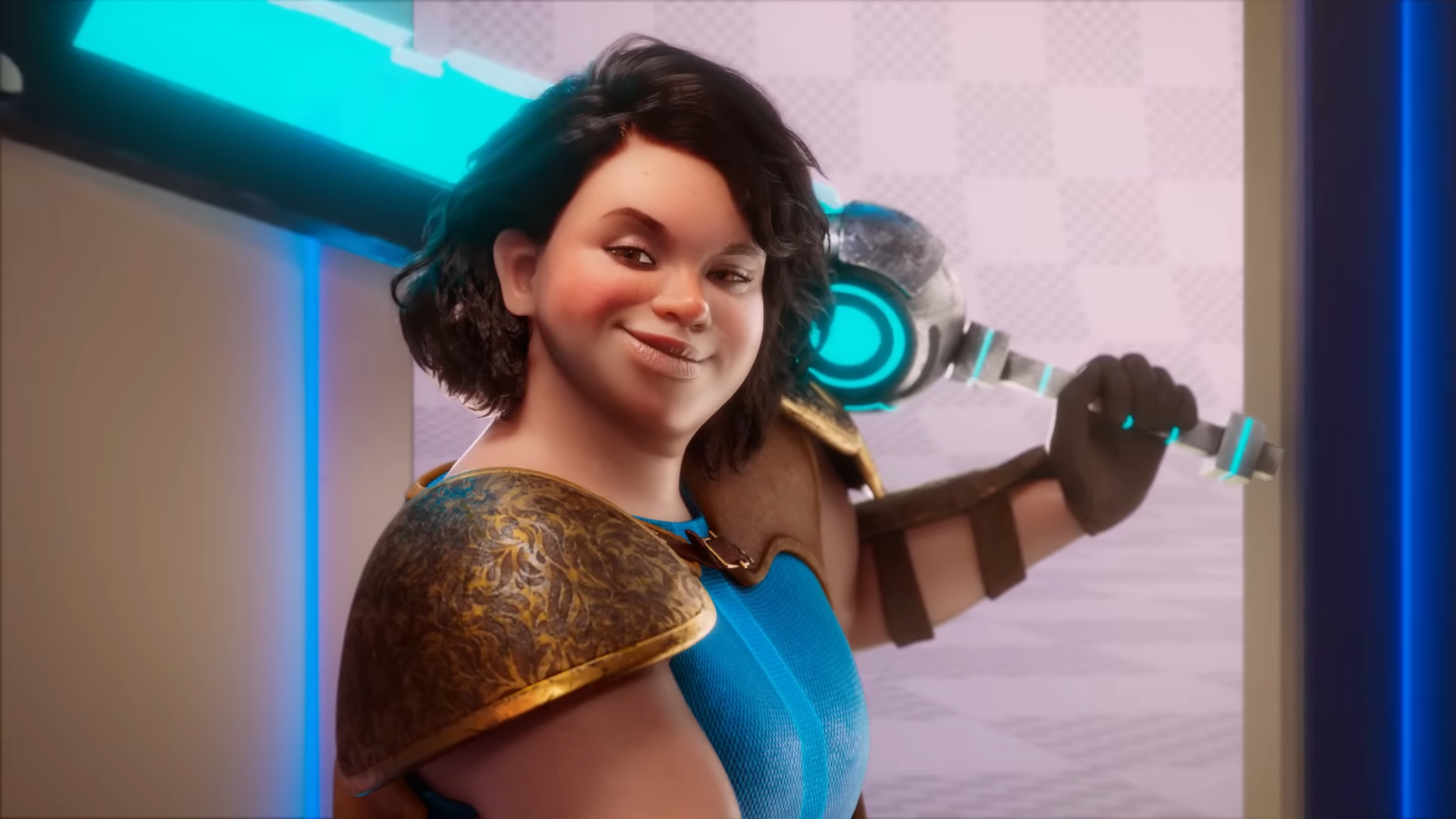
Making her a sow wasn’t enough, they had to also give her the most annoying smirk humanly possible
However, before returning to her job, she takes a long look at her reflection in the mirror. Coming to terms with her own appearance, the heroine then proceeds to gear-up and return to set, this time sans her defensive gear.
“74% of girls feel underrepresented in video games,” the ad then reads, citing a 2022 study conducted by Dove, the aformentioned Women in Games, and the Centre for Appearance Research, which is apparently based on a simple survey and whose methodology has not been publicly released. “We partnered with Unreal Engine and Women in Games to change this.”
Showing off the results of this partnership, the ad then replays its previous battle scene, only this time with Cinthia’s original model replaced with her more ‘representative’ one.
As Cinthia crosses her arms for one final victory pose, the ad concludes, “Let’s make virtual beauty, real.”
In a promoting provided to The Drum in promotion of the campaign, Dove global VP Leandro Barreto asserted, “Dove believes that beauty should be a source of confidence, not anxiety, in every aspect of life, both real and virtual.”
“Although the games industry has made significant strides to become more inclusive, progress needs to be accelerated to challenge the narrow definitions of beauty still visible in the virtual world,” she added. “Together without partners, we hope to make a real impact on the millions of women and girls who spend their free time playing games.”
As per the ‘Real Virtual Beauty‘ official website, the campaign’s efforts will include not just the above ad, but also an exclusive Roblox game centered on “a school for kids with superpowers that’s under siege by a group of rogue students spreading negativity” and a “Real Beauty in Games Training programme – an online course designed to educate developers, creators and artists about beauty and diversity in gaming.”
“Gamers want true-to-life diversity even in the fantasy realm of gaming, but there’s work to be done on female representation in video games – especially when it comes to the creation of avatars,” explained the campaign of its training programme. “Featuring modules developed in partnership with the Centre for Appearance Research (CAR), the Dove Self Esteem Project (DSEP), and industry experts, the course will help teach creators how to avoid unconscious bias across the stages of avatar and character development, giving female players an opportunity to redefine how they are represented across the gaming experience.”
In democracy, everything is about force. Powerful people force you to do things against your will.
No one who plays video games is asking for disgusting fat women in video games. These people from the soap company come in and start telling you “you WILL do what we tell you to do!”
By the way – Dove doesn’t actually make soap, they make detergent.
I don’t even believe in soap, but if I were going to use soap, I would not use any soap that contained ingredients that I could not immediately identify.
The only purpose of soap is to create a sudsy foam that allows you to scrub healthy microbes from your skin. You can create this foam using fats from animals or plants, as well as various other things from nature.
Using soap at all is pathological, quite frankly. It doesn’t affect your body odor to not use soap. Historically, the foam may have been reasonably used to get serious dirt to come off easier with limited amounts of water. If you have a shower, and you have a wash cloth or a piece of loofah, you have no reason to use soap. At all.
Body odor comes from sweat, which comes out of your pores. It doesn’t come from the surface of your skin. This should be very obvious.
Underarm deodorant is the primary agent of stopping body odor in the modern world. Because you are wearing clothes all day, you are going to sweat under certain conditions, particularly under the arms (and from your groin) where the primary glands are. Underarm deodorant is even more insidious than soap, as it actually uses a chemical process to stop your glands from expelling heat and/or toxins through sweat.
Of course, if you eat a clean diet, the sweat is not going to be rancid-smelling because your body isn’t rapidly trying to expel poison by any means necessary (unless it stays in fabric for several hours).
But there’s no real solution though if you work in an office. Even if you eat a clean diet, you will sweat and create a musky odor, which will be noticeable to people near you when you raise your arms.
I’d say the problem is women in the workplace.
Obviously.
You smell sweaty men at the gym, I assume, and that doesn’t bother you. In fact – strange but true – the smell of other men’s musk actually increases your testosterone, which helps at the gym (or work, for that matter).
This obviously makes biological sense – if there is a situation where other men are getting worked up and producing heavy amounts of sweat in nature, this would have implied potential violence. You see it in sports as well of course. Aggression from other men implies that you may need to be aggressive (unless you’re a cowardly faggot), and so it makes sense your body would have ways of determining the potential for aggression.
Aside from confrontation, smelling another man’s musky sweat and having your testosterone increase would be useful in a war situation, where you are getting worked up for battle. In simulated war – sports – men do this now, revving up together before games, juicing each other up for the (simulated) combat.
But again, none of this last part has anything to do with soap, because you can easily remove dead cells from your skin without soap (especially if you have running water in your house, which I assume you probably do have).
Snake Baker contributed to this article.
